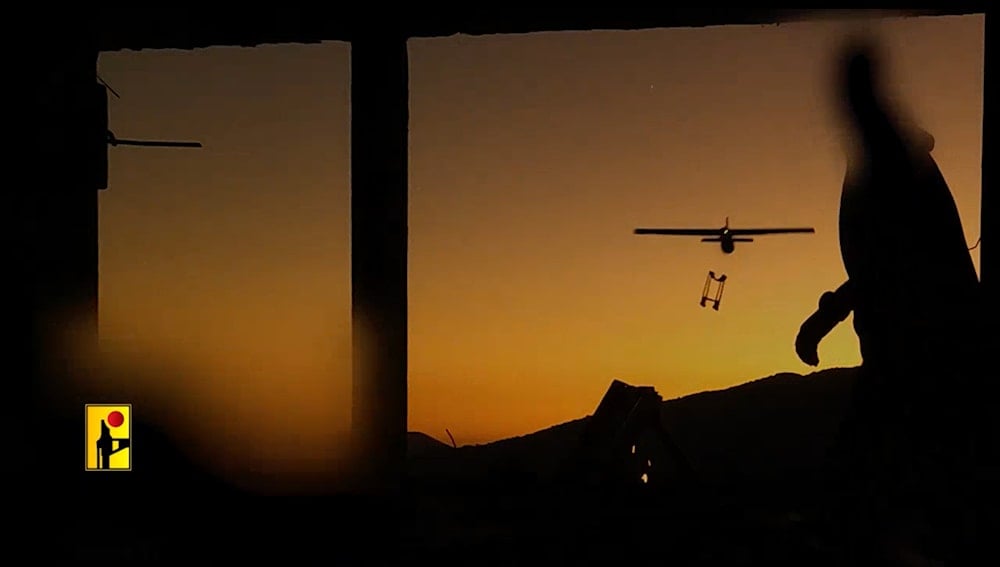Reserve shortages hindering efforts against Hezbollah: Maariv
Israeli newspaper Maariv highlights a major dilemma facing the army due to a lack of reserve soldiers, noting its impact on diminishing pressure on Hezbollah.
-

Resistance media release footage from Hezbollah's targeting of the Eliakim base, south of the occupied city of Haifa on November 15, 2024. (Screengrab/Resistance media)
Following a significant decline in enlistment numbers, Avi Ashkenazi, the military correspondent for the Israeli newspaper Maariv, highlighted a growing crisis within the Israeli military that could undermine efforts to pressure Hezbollah.
He emphasized that the shortage of reserve fighters would weaken the Israeli army's ability to apply military pressure on Hezbollah, potentially hindering any efforts to resolve the war.
Ashkenazi cited a conversation among reserve reconnaissance soldiers in the Golani Brigade, where they spoke about the "economic and family struggles" they endured after a year and a half of fighting, with some having already served over 250 days.
In this context, the soldiers, speaking to the military correspondent, expressed frustration with how Israeli leaders treat them, saying, "People here are facing financial ruin, businesses are on the brink of collapse, and soldiers are burdened with personal and professional struggles. We enlisted out of a sense of duty, yet it feels as though the government has shown little regard for our sacrifices or well-being."
The correspondent explained that "only 3% of Israelis serve in the reserves, and half of them are combat soldiers, meaning just over 1% of the population bears the burden of frontline duty as reserve fighters."
He emphasized that "just before launching the operation in Lebanon, the army mobilized four divisions, with the majority of the forces consisting of reserve units and soldiers," further noting that "as the fighting progressed, the army scaled back its presence in Lebanon and redeployed several reserve brigades to resume operations" within the occupied territories.
Israeli army reduces reservist service to solve recruitment issue
According to Israeli media reports, the Israeli military has decided to reduce the duration of reserve service following a significant drop in enlistments. In detail, Israeli news channel i24 news revealed that the army plans to reduce the reserve battalion's operational service period from an average of 20 weeks in 2024 to just 9 weeks in 2025.
It said, "The Operations Command has decided to consolidate the reserve service into one continuous period, rather than splitting it up, to reduce the pressure on reserve soldiers."
In this context, Yedioth Ahronoth reported that the military is concerned about a 15% to 25% decline in reserve service participation.
The newspaper detailed that this concern emerged in recent weeks within the combat brigades operating in the Gaza Strip and along the northern front during the war in Lebanon, emphasizing that it influences the military's operational decisions.
It also confirmed that, according to the Israeli military's estimates, the primary reason for the decline in reserve service is "increasing fatigue and the extensive use of reserve soldiers," a trend expected to persist until 2025.

 3 Min Read
3 Min Read








